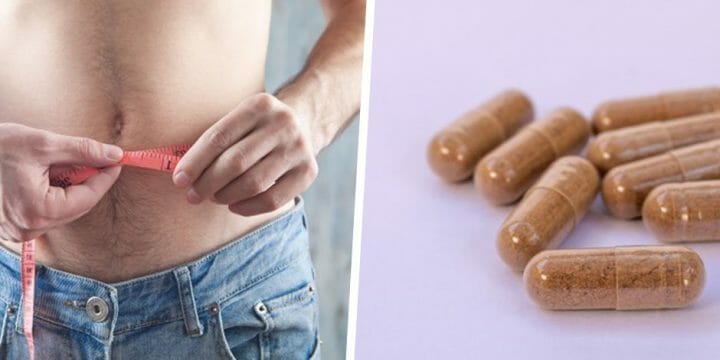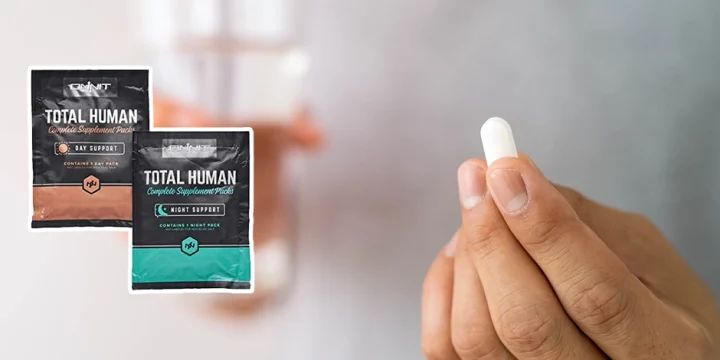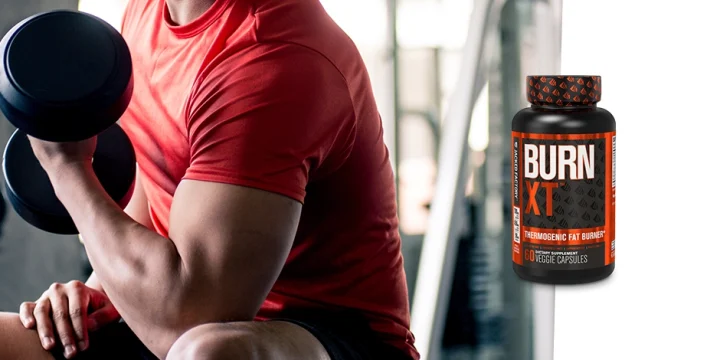As a personal trainer, I spend countless hours at the gym and hear endless chatter about the most effective and fastest route to weight loss.
Many of my fellow gym-goers and I chat about natural ways to speed up weight loss, and I noticed a common belief that caffeine is one of the things that does the trick.
So, I set out to prove (or disprove) that theory, so I consulted a registered dietitian and read as much research data as I could find to answer this question.
So grab a cup of joe and read on.
Quick Summary
- Caffeine aids in weight loss by stimulating the nervous system to burn fat for energy and by suppressing the appetite through the reduction of the ghrelin hormone.
- Using caffeine as a pre-workout enhances athletic performance, including improved focus and stamina, contributing to more effective workouts and increased fat loss.
- Research published in PubMed indicates that caffeine can increase the resting metabolic rate (RMR) by up to 11%, thereby boosting the body's calorie-burning capacity even when at rest.
- In my opinion, the benefits of caffeine, especially for weight loss and workout enhancement, are substantial and make it a valuable addition to a fitness regimen.
Can Caffeine Boost Metabolism?

Yes, caffeine can boost metabolism because it stimulates the nervous system and directly signals the fat cells to burn fatty acids for energy. In my experience, caffeine really revs up metabolism. I've felt more energized and noticed a quicker fat burn rate during my training sessions.
Caffeine also increases thermogenesis, signaling your body to burn more calories to produce heath [1].
Metabolism is the rate at which your body expends energy.
By increasing a person’s metabolic rate, the individual can expend more energy, ultimately making weight management easier.
Research published in PubMed shows that caffeine raises the resting metabolic rate (RMR), the rate at which you burn calories by doing nothing at all, by as much as 11% [2].
Boosting metabolism can also lead to more energy, better sleep, improved circulation, and elevated mood.
The benefit is actually multi-fold because burning more energy can activate weight loss, which then can then set a cascade of other health benefits like lower blood pressure, cholesterol, increased mobility, and even prevention of type 2 diabetes.

Can We Use Caffeine as Pre-Workout?
Yes, we can use caffeine as a pre-workout, as consuming 3-9mg/kg of body weight proved capable of improving athletic performance in long-term endurance and intense short-term exercise in the elite and recreational subjects alike, according to the International Journal of Sport Nutrition and Exercise Metabolism [3].
Caffeine is the main stimulant found in coffee and, as such, has an ergogenic effect (enhances exercise performance) and boosts alertness in high-intensity exercise, benefits sustained- endurance exercise like time trials, and improves aerobic exercise ability and tolerance [4].
During my cutting phase, I used one or two cups of coffee as a pre-workout, which significantly improved my focus and stamina. This led to more effective workouts and a notable increase in fat loss. Additionally, increasing my daily coffee consumption helped me benefit from its rich nutrients like antioxidants, vitamin B2, B3, magnesium, and potassium.
Still, as a personal trainer, I prefer to use an all-natural fat burner supplement because most have caffeine for the metabolic, energy, and focus boosts we’ve discussed here, plus a few substances to jumpstart and keep your workouts going.
Related Articles:
Does Consuming It Before Exercise Help Burn Fat?

Yes, consuming caffeine before exercise can help burn fat by boosting metabolism and promoting thermogenesis, as mentioned before.
A study published by the Journal of the International Society of Sports Nutrition shows that caffeine or strong coffee consumed 30 minutes before exercise was a major contributor to fat oxidation (burning) during exercise [5].
A review of 21 published meta-analyses confirmed even further that caffeine ingestion before exercise enhanced performance and fat-burning in both aerobic and anaerobic exercise, though more prominent in aerobic [6].
My trial period of drinking coffee before hitting the gym underscores the conclusive evidence of countless research and reviews.
Adding caffeine pills to my pre-workout routine helped me get more out of my workouts, and it actually cut my cutting phase noticeably.
Drinking coffee has proven helpful in weight loss efforts, mainly by boosting fat burning. Its active ingredients activate the nervous system, which helps release fat cells into the bloodstream for energy use.
Personally, adding coffee to my daily regimen significantly enhanced my fat loss, positively affecting my weight loss journey.
To make your coffee a supportive ally in your weight loss journey, consider adding healthy ingredients like coconut oil to suppress appetite, collagen for protein intake, or cinnamon as a natural antioxidant, each contributing to both flavor and health benefits without excess calories.
“Epinephrine, also known as adrenaline, travels through your blood to the fat tissues, signaling them to break down fats and release them into your blood.”
- Kris Gunnars, BSc
Effects on Appetite and Cravings
Caffeine may have appetite-suppressing effects because it reduces the hormone ghrelin, which increases hunger or feelings of hunger [7].
More research showed that caffeine intake over four weeks increased the hormone serotonin, which curbs appetite, according to the Food Research International [8].
The dual effects of caffeine—boosting metabolism and suppressing appetite—significantly aid in weight loss. By reducing calorie intake and increasing calorie burn, caffeine effectively supports a caloric deficit, leading to more efficient weight loss.
Caffeine has been shown to reduce impulsivity towards food choices, potentially helping to avoid the consumption of unhealthy, high-calorie foods on a whim, a psychological benefit that could be crucial for those on a weight loss diet.
Based on my diet regime, I've noticed that caffeine helps curb my cravings and keeps hunger at bay, making it easier to stick to my nutrition plan.
FAQs
Which Is the Best Coffee for Weight Loss?
Black caffeinated coffee is best for weight loss because it does not have any fat or added sugars that contribute to weight gain.
A cup of black coffee contains minimal calories, usually around five. Specialty coffee drinks, half and half, milk, flavoring substances, and sugar can quickly increase the calories per cup.
How Much Caffeine Will Help You Lose Weight?
To lose weight, consume 350-400 mg of caffeine per day, which is equal to approximately four cups of coffee.
Caffeine boosts metabolism and helps burn body fat and calories, especially when combined with a healthy diet and exercise routine.
You should keep in mind that for most people ingesting more caffeine than this daily might lead to jitters and other unwanted side effects.
Is Caffeine Good after a Workout?
Yes, caffeine is good after a workout, especially when combined with carbs and protein.
When you drink coffee, it can increase blood glucose and blood insulin levels and enhance the transfer of glucose to the muscles, aiding recovery and repair.
References:
- https://www.ncbi.nlm.nih.gov/pmc/articles/PMC6467726/
- https://pubmed.ncbi.nlm.nih.gov/2912010/
- https://journals.humankinetics.com/abstract/journals/ijsnem/5/s1/article-pS84.xml
- https://www.everydayhealth.com/columns/jared-bunch-rhythm-of-life/caffeine-your-heart-and-exercise/
- https://jissn.biomedcentral.com/articles/10.1186/s12970-020-00400-6
- https://pubmed.ncbi.nlm.nih.gov/30926628/
- https://www.webmd.com/diet/features/your-hunger-hormones
- https://www.sciencedirect.com/science/article/abs/pii/S0963996914003378?via%3Dihub
About The Author
You May Also Like






